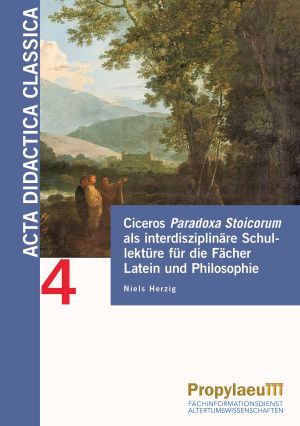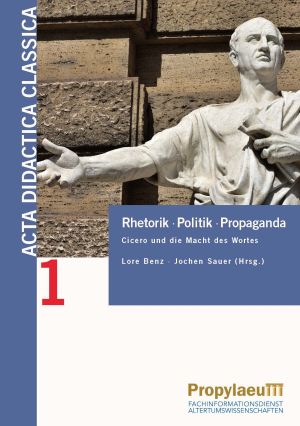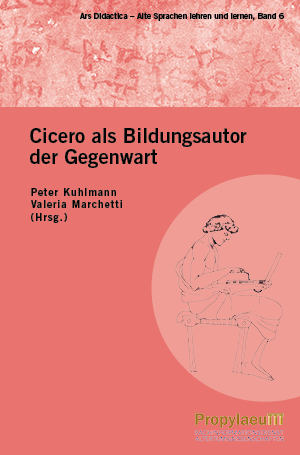Herzig, Niels
Ciceros Paradoxa Stoicorum als interdisziplinäre Schullektüre für die Fächer Latein und Philosophie: Eine Untersuchung eines fächerübergreifenden Kompetenzgewinns
Cicero's Paradoxa Stoicorum (46 B.C.) is a work that has long been forgotten in high school education. The Paradoxa aspire to popularize the scholarly language of Stoic philosophy with the help of rhetoric. This – from today's perspective – interdisciplinary character and the brevity of the work are reasons that allow students of our time an unusually open as well as easy access to Latin philosophical literature, which draws attention to the interdisciplinary value of teaching Latin in schools. This book focuses on concepts such as happiness, freedom and wealth, which are difficult to define, but – at the same time – determine everyday life. The book wants to show the benefits of the Paradoxa Stoicorum in particular as well as the benefit of teaching Latin across various disciplines in general.
Rhetorik, Politik, Propaganda: Cicero und die Macht des Wortes
The five articles in this volume present Cicero's oratorial work and show ways in which Cicero and his rhetorics can be introduced to the world of pupils. All contributions are based on three speeches or speech corpora of Cicero that are central to school lessons: the speeches against Catiline, the speech for Sestius and the Philippine speeches. A detailed bibliography with reviews of relevant didactic publications concludes the contributions. A comprehensive appendix offers material for implementation in the classroom.
Cicero als Bildungsautor der Gegenwart
Cicero’s works are still often used in Latin instruction. In November 2018, a conference organized by the Göttingen Collaborative Research Center ”Education and Religion“ examined the pedagogical value of Cicero’s philosophical works in particular.
The results of that conference are presented here and include contributions from instructors throughout Germany as well as Austria and Italy. These essays pursue both diachronic and synchronic aspects of reading Cicero in the classroom, as well as the significance of Cicero's works as examination texts. They show how Cicero’s works can be considered teaching texts in two ways: While Cicero has a canonical status for Latin teaching today, he also saw himself as an educator in his own day, concerned with cultivating humanitas in his readers.









